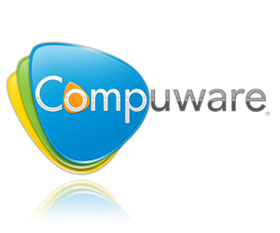Adding value to govt through cloud computing
In today’s connected world, every citizen needs access to essential government services. They expect instant results anytime, anywhere. From making communities and borders safer, to improving education, vital care and other services, the government CIO needs to harness technology best practices to build more efficient, streamlined and secure infrastructures.
Police, fire and emergency response organisations are forced to depend on the latest technology to communicate quicker, better allocate resources and share information more securely to improve citizen safety and reduce the negative impact of accidents and disasters. Completing the cycle; justice organisations, including courts and correction facilities, must track offenders, manage secure records and share information between jurisdictions and with public safety organisations.
Government health and social services leans heavily on technology to streamline efficiency, improve services to citizens in need and reduce fraud and waste. Without the safety net, the elderly, disadvantaged children, sick and others with real needs suffer.
With policy changes to welfare programmes, increased requirements on record management, skyrocketing healthcare costs and significant incompatibility across agencies using legacy systems, technology is pushed to its limit to keep up with the strain.
Technology plays a vital role in supporting government’s role of providing an efficient infrastructure of roadways, transportation systems, public works, postal systems, utilities and environmental agencies for its citizens. Technology adds quality control, mapping capabilities, shared information and communications for better decision making in these government functions. Within the transportation agencies, secure and efficient records management is critical based on the complexity within motor vehicle registration and drivers’ licenses.
At the core of a government’s function is its ability to administrate and conduct its government business efficiently. Government requires appropriate systems for taxation and auditing as well as the management of other revenue streams.
A variety of applications add complexity to an IT infrastructure as it supports the administrative duties of government procurement, licensing, elections and voter registration, records management, personnel and insurance.
Today’s defence organisations demand greater network-enabled war fighting capabilities and modernisation of support. They must securely and quickly communicate with other military units, military organisations and nations for real-time decision making. They must also have efficiencies in procurement, medical, personnel and logistics. Within the borders, governments must provide the security that includes terrorist and threat monitoring, crime control and emergency response.
With demand for education increasing and funding stretched, education looks to technology to step in. Technology provides schools and universities with more efficient ways to manage information, create improved teaching practices, maximise resources, decrease administrative costs and support managed learning environments.
While this opens up a world of possibilities, it also poses challenges for the government CIO.
Many government CIOs across the world are considering cloud computing because it can be rapidly provisioned and released with minimal intervention from the service providers. However, should CIOs take advantage of public cloud services, such as Amazon EC2 and Google App Engine or build their own cloud behind the firewall? The question might miss an essential point: they can do both.
Cloud computing brings with it the promise of choice; choice in how you source and deliver services to drive out cost, in how you ramp up delivery time and in how you achieve higher quality. But choice typically comes with complex questions like these:
- How do I know which services are right for cloud?
- What is the most effective way to build a private cloud for today and tomorrow?
- What is the appropriate mix of private cloud and public cloud and how does it change over time?
- How secure are my cloud services?
- How do I manage my services portfolio to get the desired benefits?
- How do I build a flexible environment able to adapt to change in business requirements?
The best cloud solutions are designed to help CIOs and their IT organisations become the builder and broker of services – maintaining control, building value and leveraging the value of private and public clouds.
A set of core attributes characterises each cloud model in a successful government cloud service.
- Private Cloud. Cloud assets are operated solely from each entity and may be located on or off premises and may be owned and managed by that entity or a third-party. The SA government in particular currently prefers to manage and/or operate on-site for security related regulations.
- Public Cloud. Cloud assets are shared and services are provided on a pay-per-use basis to multiple entities. All assets are owned and operated by the provider.
Governments across the world are creating a hybrid service portfolio comprising services from many sources – traditional, private and public cloud services. It is critical for the government CIO to align the right model to the right service. To be able to do that, you have to build, consume and manage appropriate cloud services in an effective and secure way.
Ideally, the government CIO should take four key actions associated with enterprise cloud computing. Wherever you are in the transition to cloud-based solutions and services, a clear focus in these actions could help frame your decision making.
- Build cloud services. Deploy an on-demand hybrid service delivery environment that provides easy access to self-service resources from a secure, on-premises environment.
- Consume new cloud services so that they can quickly and easily make the connections that improve data flow and service quality while reducing capital outlay in comparison with alternate sourcing options.
- Manage and secure the entire services portfolio to effectively govern across a flexible, hybrid delivery model.
- Transform legacy IT operational models to adapt to a service-centric, hybrid delivery model.
In conclusion, there are clearly various options that the government CIO can pursue in providing cloud services to his/her stakeholders. Whether it be traditional, private or public cloud, the government CIO needs to be able to add immediate value to the organisation without sacrificing existing investments.
It is highly recommended for the government CIO to invest in a vendor offered cloud workshop. The output from this workshop can provide information and discussions to help get key decision makers aligned on taking a journey to cloud solutions.
By President Ntuli, HP Global Accounts Manager: Public Sector



